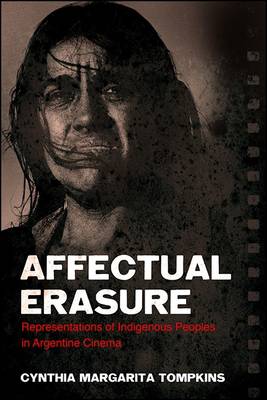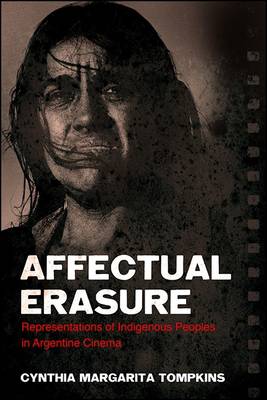
- Afhalen na 1 uur in een winkel met voorraad
- Gratis thuislevering in België vanaf € 30
- Ruim aanbod met 7 miljoen producten
- Afhalen na 1 uur in een winkel met voorraad
- Gratis thuislevering in België vanaf € 30
- Ruim aanbod met 7 miljoen producten
Affectual Erasure
Representations of Indigenous Peoples in Argentine Cinema
Cynthia Margarita TompkinsOmschrijving
Comprehensive examination of how Indigenous peoples have been represented in Argentine film.
Affectual Erasure examines how Argentine cinema has represented Indigenous peoples throughout a period spanning roughly a century. Cynthia Margarita Tompkins interrelates her discussion of films with the ethnographic context of the Indigenous peoples represented and an analysis of the affective dimensions at play. These emotions underscore the inherent violence of generic conventions, as well as the continued political violence preventing Indigenous peoples from access to their ancestral lands and cultural mores. Tompkins explores a broad range of movies beginning in the silent period and includes both feature films and documentaries, underscored by archival and contemporary film stills. She traces the initial erotic projection, moving through melodrama to the conventions of the Western, into the 1960s focus on decolonization, superseded by allegorical renditions and the promise of self-expression in late twentieth-century documentaries. Each section includes an introduction to the sociohistorical events of the period and their impact on film production. Analyzed chronologically, the films evidence different stages in the projection of the hegemonic Argentine imaginary, which fails to envision the daily life of Indigenous peoples prior to conquest or in colonial times-and remains in denial of their existence in the present.
Specificaties
Betrokkenen
- Auteur(s):
- Uitgeverij:
Inhoud
- Aantal bladzijden:
- 398
- Taal:
- Engels
- Reeks:
Eigenschappen
- Productcode (EAN):
- 9781438470979
- Verschijningsdatum:
- 1/09/2018
- Uitvoering:
- Hardcover
- Formaat:
- Genaaid
- Afmetingen:
- 157 mm x 231 mm
- Gewicht:
- 635 g

Alleen bij Standaard Boekhandel
Beoordelingen
We publiceren alleen reviews die voldoen aan de voorwaarden voor reviews. Bekijk onze voorwaarden voor reviews.











